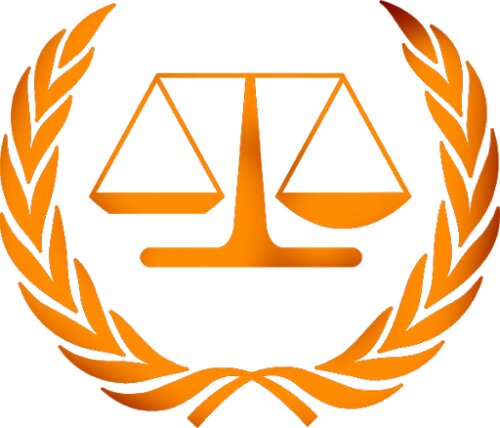ทนายความ น้ำมัน ก๊าซ และพลังงาน ที่ดีที่สุดใน ลาดกระบัง
แบ่งปันความต้องการของคุณกับเรา รับการติดต่อจากสำนักงานกฎหมาย
ฟรี ใช้เวลา 2 นาที
รายชื่อทนายความที่ดีที่สุดใน ลาดกระบัง, ประเทศไทย
1. เกี่ยวกับกฎหมายน้ำมัน ก๊าซ และพลังงานในลาดกระบัง, ประเทศไทย
ลาดกระบังเป็นพื้นที่ในกรุงเทพมหานครที่ได้รับผลกระทบจากกิจกรรมด้านน้ำมัน ก๊าซ และพลังงาน เช่น ปั๊มน้ำมัน โรงไฟฟ้า และคลังเก็บเชื้อเพลิง กรอบกฎหมายในประเทศไทยควบคุมตั้งแต่การสำรวจจนถึงการจำหน่ายและการกำกับดูแลสิ่งแวดล้อม
กฎหมายหลักแบ่งเป็นระดับชาติซึ่งบังคับใช้อย่างทั่วประเทศ บทบาทสำคัญคือการออกใบอนุญาต การกำกับดูแลความปลอดภัย และการบรรเทาผลกระทบสิ่งแวดล้อม สำหรับผู้อยู่อาศัยลาดกระบัง ความเข้าใจกรอบนี้ช่วยให้คุณทราบสิทธิ์และภาระผูกพันเมื่อมีข้อพิพาทหรือการดำเนินโครงการ
2. ทำไมคุณอาจต้องการทนายความ
ต่อไปนี้เป็นสถานการณ์เฉพาะเจาะจงที่อาจต้องทนายความด้านน้ำมัน ก๊าซ และพลังงานในลาดกระบัง:
- คุณต้องขอใบอนุญาตประกอบกิจการน้ำมันหรือก๊าซบนที่ดินในลาดกระบัง และไม่แน่ใจแนวขั้นตอน
- โครงการปั๊มน้ำมันใหม่ มีข้อกำหนดด้านสิ่งแวดล้อม (EIA) ที่คุณต้องตอบสนองและสื่อสารกับหน่วยงานรัฐ
- ข้อตกลงเช่าที่ดินสำหรับคลังน้ำมันหรือสถานีบริการอยู่ระหว่างการต่อสัญญากับเจ้าของที่ดินในลาดกระบัง
- คุณติดขัดด้านการต่อรองสัญญากับผู้จัดหาปิโตรเลียม หรือข้อพิพาทด้านราคาและเงื่อนไขการส่งมอบ
- พบข้อกำหนดด้านความปลอดภัย มีคำสั่งปรับ หรือการตรวจสอบจากหน่วยงานกำกับดูแล
- ต้องประเมินและวางแผนการลดผลกระทบต่อชุมชนและสิ่งแวดล้อมของลาดกระบัง
นอกจากนี้ ทนายความสามารถช่วยคุณในด้านการตีความกฎหมาย การเตรียมคำร้อง หรือร่างสัญญาที่เกี่ยวข้องกับโครงการพลังงานในพื้นที่ลาดกระบังได้อย่างตรงไปตรงมา
3. ภาพรวมกฎหมายท้องถิ่น
กฎหมายที่ใช้งานควบคุมด้านน้ำมัน ก๊าซ และพลังงานในประเทศไทยมีลักษณะระดับประเทศ แต่มีผลบังคับใช้ในกรุงเทพมหานครและลาดกระบังผ่านระเบียบข้อบังคับของหน่วยงานรัฐ ดังนั้นผู้ประกอบการและผู้พักอาศัยควรทราบกรอบหลักที่ประกาศโดยหน่วยงานรัฐกลาง
2 กฎหมาย/ระเบียบหลักที่เกี่ยวข้องโดยทั่วไป ได้แก่:
- พระราชบัญญัติน้ำมัน พ.ศ. 2518 - กำหนดกรอบการสำรวจ ประกอบกิจการ และการควบคุมการผลิตและการจำหน่ายน้ำมันในประเทศ
- พระราชบัญญัติกิจการอุตสาหกรรมพลังงาน พ.ศ. 2550 (Energy Industry Act) - สร้างกรอบการกำกับดูแลอุตสาหกรรมพลังงาน และตั้งสถาบันกำกับดูแล เช่น ผู้กำกับการด้านพลังงาน
- พระราชบัญญัติมลพิษสิ่งแวดล้อม พ.ศ. 2535 - กําหนดกรอบการประเมินผลกระทบสิ่งแวดล้อม (EIA) และการควบคุมมลพิษที่เกิดจากโครงการพลังงาน
โดยทั่วไป โครงการด้านน้ำมันและก๊าซในลาดกระบังจะต้องผ่านการขอใบอนุญาต ชี้แจง EIA และสอดคล้องกับข้อกำหนดด้านสิ่งแวดล้อม ซึ่งขึ้นกับคำสั่งของหน่วยงานกำกับดูแลระดับชาติ เช่น กรมพลังงาน (DEB) และสำนักงานกำกับดูแลด้านพลังงาน (ERC)
4. คำถามที่พบบ่อย
อะไรคือขั้นตอนพื้นฐานในการขออนุญาตน้ำมันในลาดกระบัง?
ขั้นตอนหลักคือเตรียมเอกสารแสดงที่ตั้ง โครงร่างโครงการ และแผนความปลอดภัย จากนั้นยื่นขอใบอนุญาตผ่านหน่วยงานที่รับผิดชอบ เช่น DEB และรับการตรวจสอบขั้นต่างๆ
อย่างไรฉันจะรู้ว่าโครงการของฉันต้องทำ EIA หรือไม่?
หากโครงการมีผลกระทบต่อสุขภาพ คุ้มครองสิ่งแวดล้อม หรือใช้พื้นที่ขนาดใหญ่ หน่วยงานสาธารณะจะพิจารณาให้ทำ EIA ตามกฎหมายสิ่งแวดล้อม
เมื่อไหร่ควรจ้างทนายความด้านน้ำมัน ก๊าซ และพลังงาน?
เมื่อคุณเริ่มกระบวนการขอใบอนุญาต หรือเมื่อเกิดข้อพิพาทด้านสัญญา สนธิสัญญา หรือข้อบังคับด้านความปลอดภัย ควรปรึกษานักกฎหมายทันทีเพื่อวางแผนและลดความเสี่ยง
ที่ไหนสามารถตรวจสอบสถานะใบอนุญาตหรือกระบวนการอนุมัติได้?
คุณสามารถตรวจสอบผ่านเว็บไซต์ทางการของDEB และ ERC รวมถึงประกาศจากราชกิจจานุเบกษา สำหรับข้อมูลล่าสุดควรติดตามข่าวสารจากหน่วยงานราชการ
ทำไมค่าธรรมเนียมและค่าใช้จ่ายถึงสูงในการดำเนินคดีน้ำมัน?
ค่าใช้จ่ายสะสมจากค่าธรรมเนียมใบอนุญาต ค่าใช้จ่ายด้านการตรวจสอบสิ่งแวดล้อม และค่าใช้จ่ายทางกฎหมาย หากมีข้อพิพาทเรื่องสัญญาและการบังคับใช้ข้อบังคับก็จะมีค่าใช้จ่ายเพิ่มขึ้น
ฉันควรหาทนายที่ลาดกระบังอย่างไร?
เริ่มจากค้นหาทนายที่มีประสบการณ์ด้านน้ำมัน ก๊าซ และพลังงานในเขตลาดกระบัง หรือกรุงเทพมหานคร ตรวจสอบประวัติการดำเนินคดี ความเชี่ยวชาญ และความสามารถในการสื่อสารชัดเจน
ฉันจำเป็นต้องมีสัญญากับผู้ขายน้ำมันหรือผู้รับเหมารึไม่?
ใช่ โดยเฉพาะในสัญญาซื้ อ-ขาย หรือสัญญาเงื่อนไขการบริการ ซึ่งมีรายละเอียดราคาค่าขนส่ง เงื่อนไชการชำระ และความรับผิดชอบด้านความปลอดภัย
ความแตกต่างระหว่างทนายความกับที่ปรึกษากฎหมายคืออะไร?
ทนายความสามารถดำเนินคดี เขียนคำฟ้อง และเป็นตัวแทนคุณต่อศาล ในขณะที่ที่ปรึกษากฎหมายให้คำแนะนำเชิงนโยบายและมุมมองทางกฎหมายโดยไม่ฟ้องร้อง
ฉันจะเตรียมเอกสารเพื่อปรึกษาทนายได้อย่างไร?
รวบรวมเอกสารโครงการ ใบอนุญาต ภาษีที่ดิน บันทึกการชำระค่าใช้จ่าย และสัญญาที่เกี่ยวข้อง เพื่อให้ทนายเห็นภาพรวมและประเมินความเสี่ยงได้
ทำไมควรตรวจสอบประวัติและใบอนุญาตของผู้รับเหมา?
การตรวจสอบช่วยลดความเสี่ยงด้านความปลอดภัย ความรับผิดชอบ และคุณภาพงาน โดยเฉพาะโครงการน้ำมันและพลังงานที่มีความเสี่ยงสูง
สามารถเปลี่ยนทนายในระหว่างโครงการได้หรือไม่?
ได้ แต่ควรแจ้งให้หน่วยงานที่เกี่ยวข้องทราบ และทำสัญญาใหม่ให้ครอบคลุมช่วงเวลาที่เหลือของโครงการ
สถานการณ์ใดที่การฟ้องร้องอาจเกิดขึ้นได้ในลาดกระบัง?
ข้อพิพาทสัญญา การละเมิดเงื่อนไขสัญญา และข้อพิพาทด้านการชำระเงินระหว่างผู้มีส่วนได้เสียเป็นกรณีที่มักพบ
ฉันควรทำอย่างไรหากถูกปรับโดยหน่วยงานรัฐ?
ติดต่อทนายเพื่อประเมินความถูกต้องของการปรับและพิจารณมาตรการทางกฎหมาย เช่น การอุทธรณ์ หรือการชำระภายใต้เงื่อนไขที่เหมาะสม
5. ทรัพยากรเพิ่มเติม
ต่อไปนี้เป็นแหล่งข้อมูลทางการที่เกี่ยวข้องกับน้ำมัน ก๊าซ และพลังงาน
- สำนักงานนโยบายและแผนพลังงาน (Ministry of Energy) - คู่มือ กรอบนโยบาย และข่าวสารพลังงาน
- สำนักงานนโยบายและวิจัยพลังงาน (Energy Regulatory Commission) - กำกับดูแลราคาค่าใช้บริการ และใบอนุญาตด้านพลังงาน
- ราชกิจจานุเบกษา - ฐานข้อมูลกฎหมาย พระราชบัญญัติ และประกาศราชการ
ตามข้อมูลจากหน่วยงานกำกับดูแล พลังงานในประเทศไทยมุ่งเน้นการประกันความปลอดภัย และการคุ้มครองสิ่งแวดล้อมในทุกโครงการพลังงาน
เว็บไซต์อ้างอิงที่แนะนำ:
- กระทรวงพลังงาน - เว็บไซต์ทางการ
- Department of Energy Business (DEB) - เว็บไซต์ทางการ
- Energy Regulatory Commission - เว็บไซต์ทางการ
- ราชกิจจานุเถβกรษณ - ราชกิจจานุเบกษา
6. ขั้นตอนถัดไป
- กำหนดเป้าหมายโครงการและขอบเขตการดำเนินงานในลาดกระบัง เพื่อระบุความเสี่ยงด้านกฎหมายให้ชัดเจน
- รวบรวมเอกสารสำคัญ เช่น แปลนที่ดิน ใบอนุญาต ขั้นตอนการขออนุญาต และข้อสัญญาเดิม
- ประเมินความจำเป็นด้าน EIA และเตรียมเอกสารประกอบการยื่น
- ค้นหาทนายความด้านน้ำมัน ก๊าซ และพลังงานที่มีประสบการณ์ในลาดกระบัง
- นัดปรึกษาครั้งแรก เพื่อประเมินความเสี่ยง ค่าใช้จ่าย และแนวทางการดำเนินการ
- จัดทำสัญญาจ้างทนายความและนัดวางแผนระยะเวลาการดำเนินงาน
- ติดตามความคืบหน้าและสื่อสารกับหน่วยงานรัฐอย่างสม่ำเสมอ
Lawzana ช่วยคุณค้นหาทนายความและสำนักงานกฎหมายที่ดีที่สุด ใน ลาดกระบัง ผ่านรายชื่อผู้เชี่ยวชาญด้านกฎหมายที่มีคุณสมบัติเหมาะสมที่คัดสรรและตรวจสอบล่วงหน้า แพลตฟอร์มของเรานำเสนอการจัดอันดับและโปรไฟล์โดยละเอียดของทนายความและสำนักงานกฎหมาย ช่วยให้คุณเปรียบเทียบตามสาขากฎหมาย รวมถึง น้ำมัน ก๊าซ และพลังงาน ประสบการณ์ และความคิดเห็นของลูกค้า
แต่ละโปรไฟล์ประกอบด้วยคำอธิบายเกี่ยวกับสาขากฎหมายของสำนักงาน รีวิวจากลูกค้า สมาชิกในทีมและหุ้นส่วน ปีที่ก่อตั้ง ภาษาที่พูด ที่ตั้งสำนักงาน ข้อมูลการติดต่อ การมีตัวตนบนโซเชียลมีเดีย และบทความหรือแหล่งข้อมูลที่เผยแพร่ สำนักงานส่วนใหญ่บนแพลตฟอร์มของเราพูดภาษาอังกฤษและมีประสบการณ์ทั้งในเรื่องกฎหมายท้องถิ่นและระหว่างประเทศ
ขอใบเสนอราคาจากสำนักงานกฎหมายชั้นนำ ใน ลาดกระบัง, ประเทศไทย — รวดเร็ว ปลอดภัย และไม่ยุ่งยาก
ข้อจำกัดความรับผิดชอบ:
ข้อมูลที่ให้ไว้ในหน้านี้มีวัตถุประสงค์เพื่อเป็นข้อมูลทั่วไปเท่านั้นและไม่ถือเป็นคำแนะนำทางกฎหมาย แม้ว่าเราจะพยายามตรวจสอบความถูกต้องและความเกี่ยวข้องของเนื้อหา แต่ข้อมูลทางกฎหมายอาจเปลี่ยนแปลงได้ตามกาลเวลา และการตีความกฎหมายอาจแตกต่างกันไป คุณควรปรึกษาผู้เชี่ยวชาญด้านกฎหมายที่มีคุณสมบัติเหมาะสมเพื่อขอคำแนะนำเฉพาะสำหรับสถานการณ์ของคุณเสมอ
เราปฏิเสธความรับผิดทั้งหมดสำหรับการกระทำที่ทำหรือไม่ทำตามเนื้อหาในหน้านี้ หากคุณเชื่อว่าข้อมูลใดไม่ถูกต้องหรือล้าสมัย โปรด contact us และเราจะตรวจสอบและแก้ไขตามความเหมาะสม








